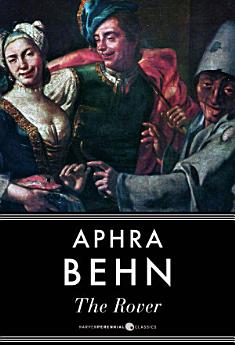The Rover
About this ebook
Author and playwright Aphra Behn created a clearly male-centric world in The Rover, but does not dismiss the power of her female characters, who are willing to go to extreme measures to fulfill their desires. The Rover was written for profit at a time when Behn had lost her source of income, but became one of the most popular plays of the Restoration era, and it is still studied and widely performed in modern times.
HarperPerennial Classics brings great works of literature to life in digital format, upholding the highest standards in ebook production and celebrating reading in all its forms. Look for more titles in the HarperPerennial Classics collection to build your digital library.
About the author
Born in the first few decades of the seventeenth century, Aphra Behn is one of early literature’s best-known female writers. Behn had the lucky distinction of being able to support herself strictly by her “pen,” something unheard of for women of her time. Throughout her long career, she wrote in various forms—poetry, plays, prose—and is known as a member of the ‘fair triumvirate of wit’ alongside fellow scribes Eliza Haywood and Delarivier Manley. Although little is known about her early life, Behn’s father held a post as lieutenant governor of Surinam, and Behn’s experiences during her stay most likely formed the basis for her most famous work, Oroonoko. Behn was also a popular dramatist in her time, penning critical successes like The Rover and The Feigned Courtesans. Her literary exploits aside, Behn is also known to have acted as a political spy for King Charles II of England during the Second Anglo-Dutch War. Behn died in 1689, and is buried in Westminster Abbey.






